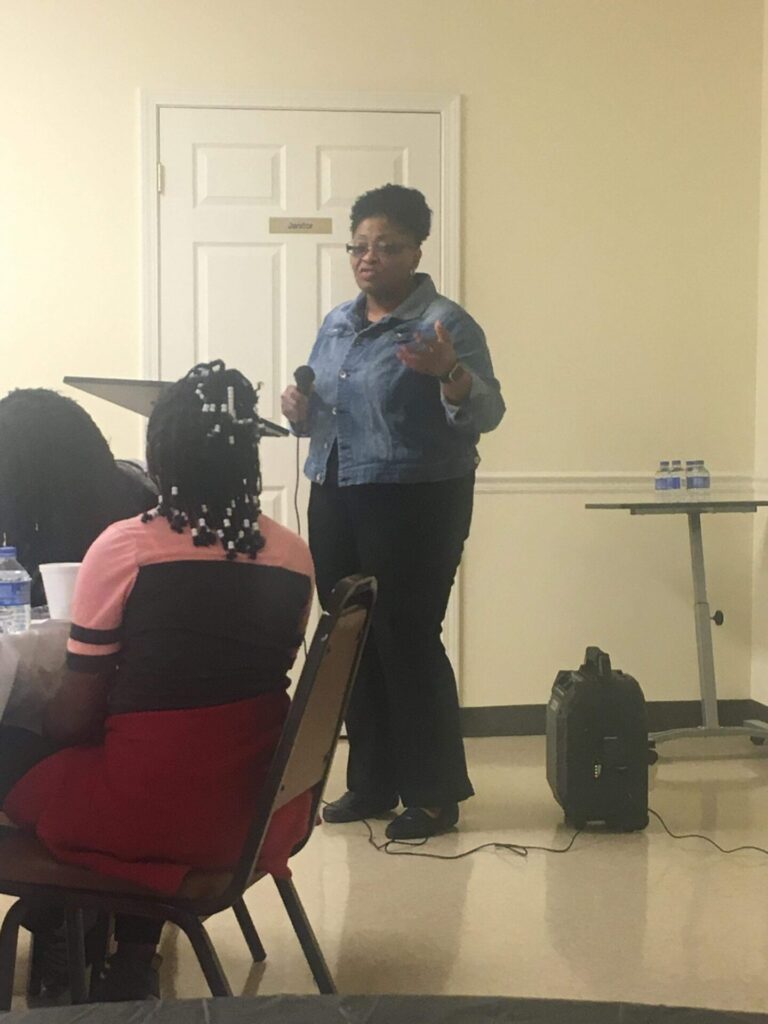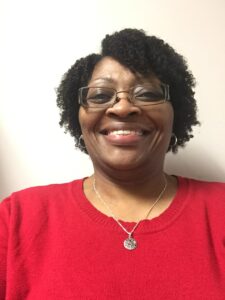

HottyToddy.com’s Steve Vassallo sat down with Families First’s Laura Gilliom to discuss her career as a field educator.
…
Laura Gillom is the only individual I’ve ever met who began her Ole Miss career at age 16. The licensed Master Social Worker is the Field Educator here in Oxford for Families First. What she is doing for Oxford’s youth is nothing shy of inspirational.
Vassallo: Laura, thanks for meeting with us. Tell our readers what a Field Educator is attempting to accomplish with our youth.
Gillom: As a Field Educator, I am an agent of change. When I encounter young minds, my goal is to empower our youth to be the best they can be in spite of their current situation or circumstance.
Vassallo: You recently conducted training at the Batesville Middle School. What is character education?
Gillom: Character education involves teaching children in a way that will help them develop while providing them with a solid foundation for life. In my limited time with them this school year, my focus has been on effective communication, building self-esteem, non-bullying behavior, manners, and proper etiquette.
Vassallo: Before diving too deeply into your current assignment and profession, your youth was not exactly a “walk in the park.”
Gillom: My journey has been a learning experience. In retrospect, I was not mature enough to come to Ole Miss at 16, but Oxford was where I believed I wanted to be at that time. I struggled with this new-found freedom. I not only dropped out of school, I often tell the students, I “flunked” out, receiving a bachelor’s in partyology. It’s not one that I’m not proud of, but I learned valuable lessons from my experience.
Vassallo: You mentioned that “bullying” is possibly getting worse in our schools. Why is this?
Gillom: Bullying is something that has always been around, but as with other issues coming to the forefront, it now has a name. It’s more pervasive in our schools, and it’s a complex issue which makes it hard to explain why it occurs. There was a time when the bully was known by everyone. Now, technology is playing an active role in how we communicate, even adults. There’s no empathy and no compassion due to a lack of interpersonal communication. When we can’t relate to each other, we’re prone to mistreat each other. Bullies torment and torture their victims through text messages and social media based on their perception of their peers instead of getting to know them on a personal level.
Vassallo: Another program that you’re engaged is describing how change can receive positive results. Are the kids buying into this?
Gillom: Along with the curriculum, I share lots of personal experiences with the students to make the subject relevant to them. As a whole, I believe the things I share are going into one ear and out the other, but there is always one student who will come up after a class and give me positive feedback. One thing I’ve learned in social work and in ministry is I can’t save everybody, but if I can reach one, I’m encouraged. Even if it doesn’t sink into their heads right now, the seed has been planted.
Vassallo: Recently while you and co-worker Ashley were presenting the subject of “Trust” to the students or lack thereof, you shared with us that the classroom got eerily quiet.
Gillom: Yes. I observe behavior and body language. In working with young people, I’ve learned that when they’re quiet, the things I’m saying are resonating with them. They have this look of discomfort. Their eyes are saying, “Why is she talking about me? Who told her to say that?” They don’t say anything that particular day, but when I return the next week and review with them, they’ll open up and tell me about things I said that made them think.
Vassallo:Tell us the difference between parenting a child versus “being the child’s friend.”
Gillom: It’s tricky. You can be a child’s parent and their friend; however, parenting requires boundaries that the modern-day lines of friendship with a child can be crossed if you’re not careful. Parenting is protecting and preparing children with the necessary tools to survive and thrive in the world in which we live.

Vassallo: With all the students you come in contact, what are some of their greatest concerns?
Gillom: Their greatest concerns are the stresses of life, adapting to their environment, and trying to fit in. We have the preconceived notion that children have no need to be stressed, but just as we had stressors, today’s students experience the same. They take on the personality of their environment. If it is one that’s stress-filled, they are stressed. When they leave school and return to their living environment, we have no idea what happens when the door is closed behind them.
Vassallo: Do most of our youth attend church on Sunday and for those who do, are they bringing these values into their Monday to Saturday lifestyle?
Gillom: It’s interesting that you asked this question. I took a seminary class last semester on Religion in Contemporary American Culture, and one of the recurring themes related to a decline in church attendance, particularly in mainline denominations. There is an increase in a group considered to be NONES, those with no religious affiliation. So, I would say that most of our youth are not attending church on Sunday, and for those who do, there are few who are bold enough to stand up for what they believe on a daily basis.
Vassallo: Is growing up today more stressful than what you experienced in Raymond and while at Ole Miss?
Gillom: Yes. I would say growing up today is more stressful than what I experienced. I was not poor, but “po”, but I didn’t know it. It wasn’t until I started writing my story in social work and seminary classes that I realized I lived in poverty as a child. The experience taught me to adapt to any environment and appreciate all of my blessings. I learned to give because I know what it’s like not to have.
Vassallo: Do African American children have a higher hill to climb and if so, why?
Gillom: Yes. African American children are born at a disadvantage. Their social and economic environments shape their thoughts and behaviors. I’m often questioned about how I was able to overcome if that is the case. I had a grandmother who instilled the belief in me every day that I could be anything I wanted to be. Because I believed her, and it hasn’t been easy, but I’ve had someone to help me get to the next level every step along my journey.
Vassallo: In your opinion what are the three greatest challenges for today’s High School students.
Gillom: The three greatest challenges for today’s high school students are peer pressure and acceptance, maintaining balance in academics and social life, and setting goals.
Vassallo: How would you describe the Oxford community to an outsider?
Gillom: When I came here as a student, Oxford was just another small town much like Raymond, with a university in the middle. Over the years I have seen Oxford grow into a progressive community with unlimited opportunities. Maybe the opportunities were always there, and my perspective has changed as I’ve matured, but I don’t know of any place I’d rather be. Oxford and Ole Miss have been good to my family and I.
Vassallo: In wrapping up, your kids appear to be off to a great start. How did your influence as a parent mold these children into making a lot of very good decisions?
Gillom: Our children are not perfect by any means, but my husband and I taught them the way we were raised—to respect themselves, respect others, and treat people the way they want to be treated. Through my mistakes, I helped them to understand that failure is not fatal; instead, it’s a teaching tool. They’ve made their own bad choices along the way, but I’m grateful they were motivated enough to pick themselves up, dust themselves off, and become the young adults they are today.
 Steve Vassallo is a HottyToddy.com contributor. Steve writes on Ole Miss athletics, Oxford business, politics and other subjects. He is an Ole Miss grad and former radio announcer for the basketball team. Currently, Steve is a highly successful leader in the real estate business who lives in Oxford with his wife Rosie. You can contact Steve at sovassallo@gmail.com or call him at 985-852-7745.
Steve Vassallo is a HottyToddy.com contributor. Steve writes on Ole Miss athletics, Oxford business, politics and other subjects. He is an Ole Miss grad and former radio announcer for the basketball team. Currently, Steve is a highly successful leader in the real estate business who lives in Oxford with his wife Rosie. You can contact Steve at sovassallo@gmail.com or call him at 985-852-7745.
